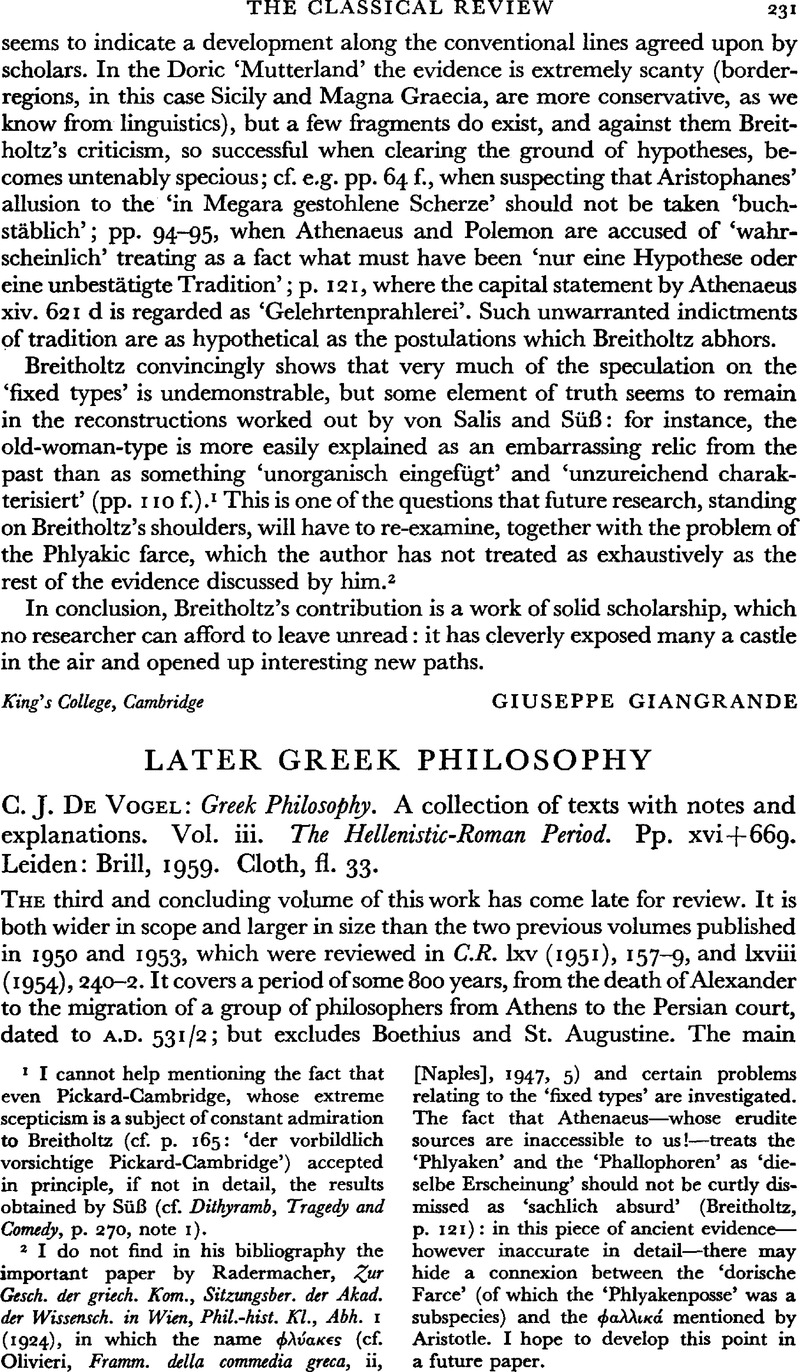No CrossRef data available.
Article contents
Later Greek Philosophy - C. J. De Vogel: Greek Philosophy. A collection of texts with notes and explanations. Vol. iii. The Hellenistic-Roman Period. Pp. xvi+669. Leiden: Brill, 1959. Cloth, fl. 33.
Published online by Cambridge University Press: 27 February 2009
Abstract

- Type
- Reviews
- Information
- Copyright
- Copyright © The Classical Association 1962
References
1 I cannot help mentioning the fact that even Pickard-Cambridge, whose extreme scepticism is a subject of constant admiration to Breitholtz (cf. p. 165: ‘der vorbildlich vorsichtige Pickard-Cambridge’) accepted in principle, if not in detail, the results obtained by Süß (cf. Dithyramb, Tragedy and Comedy, p. 270, note 1).
2 I do not find in his bibliography the important paper by Radermacher, , Zur Gesch. der griech. Kom., Sitzungsber. der Akad. der Wissensch. in Wien, Phil.-hist. Kl., Abh. 1 (1924)Google Scholar, in which the name φλ⋯ακες (cf. Olivieri, Framm. della commedia greca, ii, [Naples], 1947, 5) and certain problems relating to the ‘fixed types’ are investigated. The fact that Athenaeus—whose erudite sources are inaccessible to us!—treats the ‘Phlyaken’ and the ‘Phallophoren’ as ‘dieselbe Erscheinung’ should not be curtly dismissed as ‘sachlich absurd’ (Breitholtz, p. 121): in this piece of ancient evidence—however inaccurate in detail—there may hide a connexion between the ‘dorische Farce’ (of which the ‘Phlyakenposse’ was a subspecies) and the φαλλικ⋯ mentioned by Aristotle. I hope to develop this point in a future paper.


